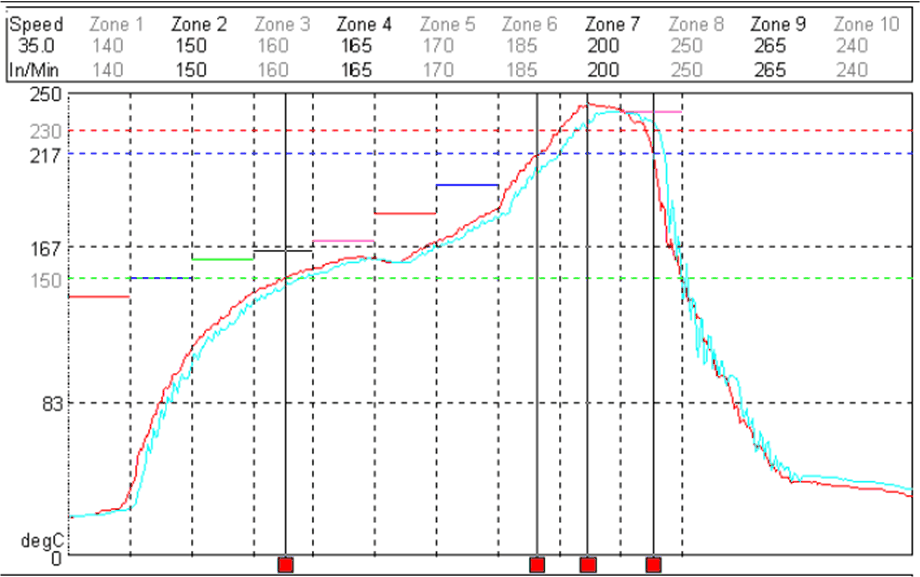SBOSA93D May 2023 – December 2024 OPT4001-Q1
PRODUCTION DATA
- 1
- 1 Features
- 2 Applications
- 3 Description
- 4 Pin Configuration and Functions
- 5 Specifications
- 6 Detailed Description
- 7 Register Maps
-
8 Application and Implementation
- 8.1 Application Information
- 8.2 Typical Application
- 8.3 Best Design Practices
- 8.4 Power Supply Recommendations
- 8.5 Layout
- 9 Device and Documentation Support
- 10Revision History
- 11Mechanical, Packaging, and Orderable Information
8.5.1.1.3 Reflow Profile
Use the profile in Figure 8-12, and adjust if necessary. Use a slow solder reflow ramp rate of 1°C to 1.2°C/s to minimize chances of solder splattering onto the sensing area.
 Figure 8-12 Recommended Solder Reflow
Temperature Profile
Figure 8-12 Recommended Solder Reflow
Temperature Profile